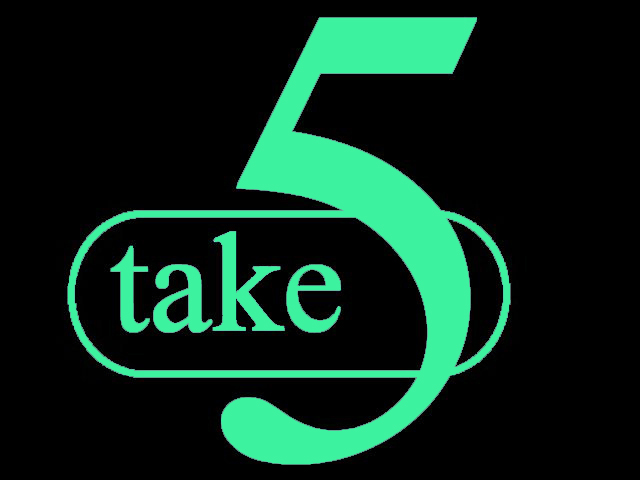
Composers have long been intrigued by Greek mythology.
It certainly provided plenty of tales of Gods and Goddesses, heroes and heroines and even some figures who might or might not have been real to set their music to - from the benign and beautiful to the downright mean and nasty.
Beethoven, Handel, Mendelssohn, Roussel, Schubert, Scriabin, Strauss and many more have been inspired to come up with glorious works, as well as a few bizarre interpretations.
All in context
To try and put it all in context though, the ancient Greeks believed that the origin of the universe began with Chaos - a divine being from which four entities of ‘The First Order’ sprung – one of whom was Gaia (earth).
Gaia bore two sons, one of which, Ouranos also became her lover. They in turn had twelve divine but somewhat disturbing off-spring called ‘The Second Order’, or Titans.
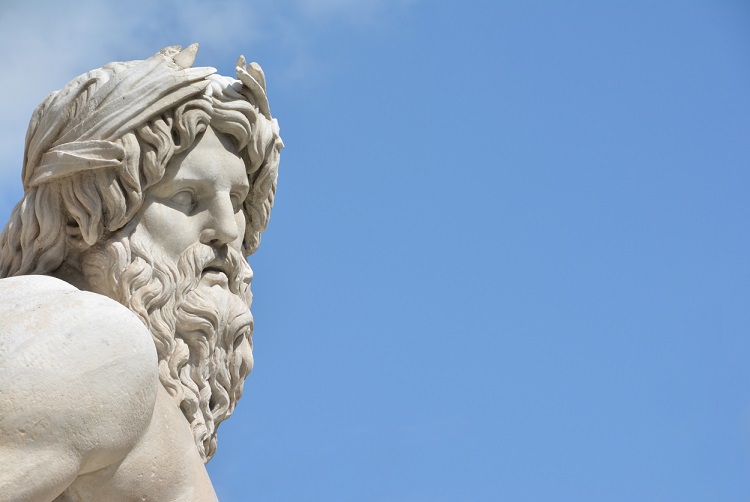
Family infighting
Not surprisingly, there was plenty of family infighting, as with Gaia’s urgings one of her sons, Kronos went on to geld his father Ouranos with a sickle and send his mother/lover packing.
Not surprisingly, there was plenty of family infighting, as with Gaia’s urgings one of her sons, Kronos went on to geld his father Ouranos with a sickle and send his mother/lover packing.
After that the family tree sprang more incestuous Olympian roots than Japanese knotweed – from Zeus and Athena to Apollo and Poseidon and many, many more besides.
If you want to find out more check out Stephen Fry’s book, ‘Mythos’ – it’s a hoot.
We have picked five pieces and their recordings to also enjoy – as well as find out a little more about their direct, or very indirect, mythical provenance.
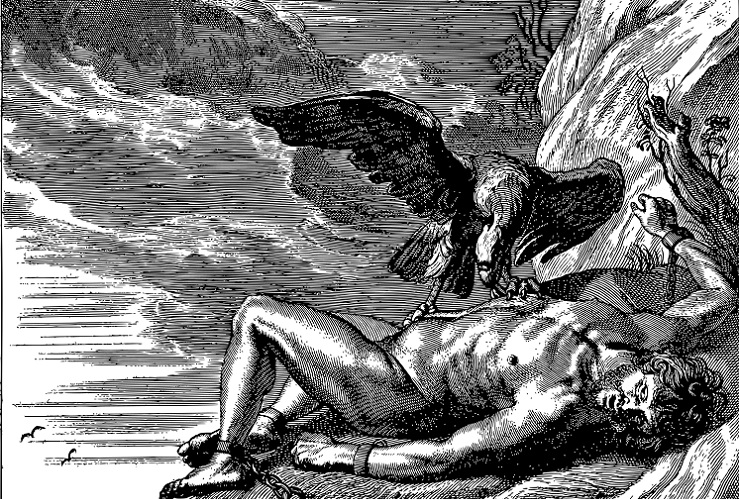
1. Prometheus Unbound (Granville Bantock)
Bantock was well known for his ‘exotic’ musical inspirations – from Omar Khayyam to The Seal Woman. He also wrote vocal works such as ‘Lucifer in Starlight’ and ‘The Sphinx’ as well a symphony ‘The Cyprian Goddess’ and a tone poem ‘Thalaba, The Destroyer’.
His symphonic prelude, ‘Prometheus Unbound’ was written for the 1933 National Championships of Great Britain. It’s inspired by the famous Shelly poem that recounts the fall of the son of the Greek titan, Iapetus (one of The Second Order) who stole fire from the Gods to give life to the humans he made from clay.
Bantock’s Prometheus is a dark and brooding figure, as majestic as he is sinister and mysterious – the music full of drama, complexity and impending doom.
Eagles and Frogs
The result of this peed off his uncle, Zeus (the most powerful of the Olympians) who had Prometheus bound to a rock for eternity whilst an eagle picked at his liver. He was eventually freed by Heracles (a hero who inspired Handel), who also appears in the back story to another of Bantock’s brass band works, ‘The Frogs of Aristophanes’.
Bantock’s Prometheus is a dark and brooding figure, as majestic as he is sinister and mysterious – the music full of drama, complexity and impending doom. The eventual outcome evoked by the composer is that of a sense of merciful release as he is finally freed to quietly contemplate the errors of his ways.
To enjoy: http://www.wobplay.com
CDS:
Of Gods and Kings
Foden’s
Doyen Recordings: CD367
https://www.worldofbrass.com/22146
University of Salford
Bantock
Doyen Recordings: CD109
https://www.worldofbrass.com/DOYCD109-download
Black Dyke
Rhapsody in Brass
Polyphonic Recordings: QPRL061D
LP Recordings:
Black Dyke
RCA LSA 3213
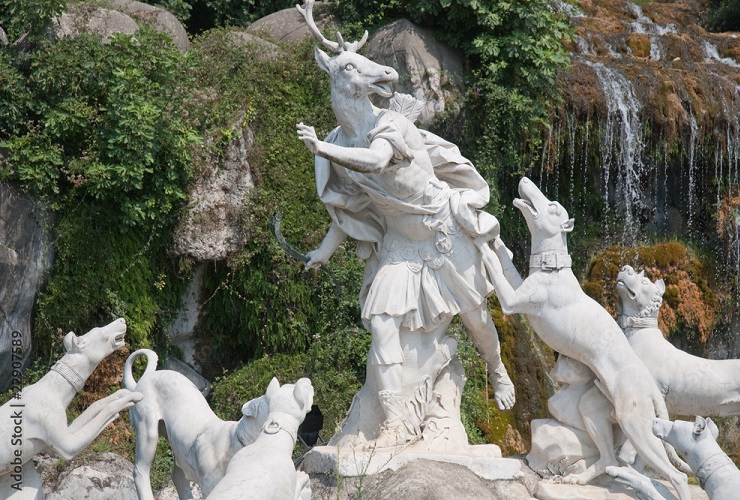
2. Actaeon (Gareth Wood)
Actaeon was the son of Aristaeus, one of the minor Gods in the panoply of superstar deities.
He was trained by a centaur (although not the one at the National Finals at Cheltenham) to become a great hunter, controlling a pack of hounds that acted with Pavolvian blood lust to kill their prey on hearing his voice.
One day though he fell foul of his wandering eye, as he came across the beautiful Artemis bathing in a forest pool. Unfortunately, she was the daughter of Zeus (one of many it must be said) as well as being the goddess of chastity, wild animals and the hunt.
Like Sid James ogling Barbara Windsor in the showers in ‘Carry on Camping’, she hears Actaeon drooling, at which point she curses him with dire consequences if he ever utters a word about what he has seen.
Carry on Camping
Like Sid James ogling Barbara Windsor in the showers in ‘Carry on Camping’, she hears Actaeon drooling, at which point she curses him with dire consequences if he ever utters a word about what he has seen.
Unable to contain his excitement Actaeon shouts to his dogs - the result of which sees him instantly turned into a stag. Soon all 50 of his hounds’ pounce, ripping out his throat and feasting on his blood.
Gareth Wood’s extended tone poem is a clever retelling of the tale – an atmospheric and bloody musical narrative that delivers up all the drama, excitement, and entrails you can imagine.
To enjoy: http://www.wobplay.com
CD:
Actaeon
Cory Band
Doyen CD: DOYCD241
https://www.worldofbrass.com/24978
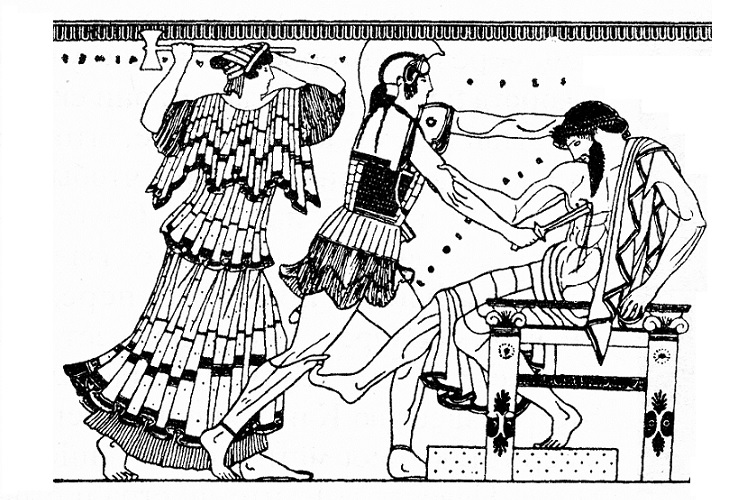
3. Electra (Martin Ellerby)
Although there was an Electra who was one of the seven sister-nymphs of the bathing beauty Artemis, this one was a mythological character in two of the most famous Greek tragedies by Sophocles and Euripides.
Much like Actaeon, many a writer has taken a fancy to her (including Voltaire and Eugene O’Neil), whilst composers from Mozart and most notably, Richard Strauss have brought her to life.
She wasn’t a woman to mess about with though.
Eight years later Orestes returns from his safe-haven, at which point the siblings then kill their mother and her lover in matricidal revenge for their father’s murder (although in truth he wasn’t exactly a saint)
In essence, Electra saves the life of her brother Orestes after their father King Agamemnon is killed by their mother, the scheming Clytemnestra and her boyfriend on his return from the Trojan War.
Matricidal revenge
Eight years later Orestes returns from his safe-haven, at which point the siblings then kill their mother and her lover in matricidal revenge for their father’s murder (although in truth he wasn’t exactly a saint). No wonder the ‘Electra Complex’ was named after her.
Martin Ellerby’s work was a joint commission for the 2012 British Open and Dutch National Championships with the three joined movements directly and indirectly linked to the story – the opening ‘Lust for Revenge’ markedly so.
The central ‘Laments’ is more aesthetic, exploring the poetic properties of the famous Strauss ‘Elecktra’ chord, whilst the finale is a matricidal ‘Dance to the Death’.
To enjoy: http://www.wobplay.com
CD:
Electra
Black Dyke Band
https://www.worldofbrass.com/25295
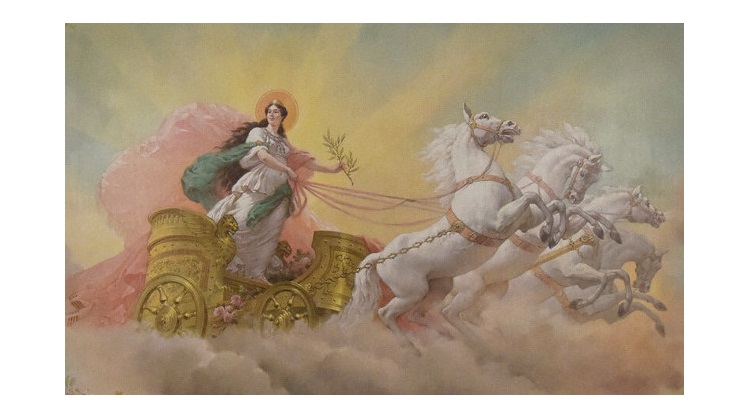
4. Aurora (Joel Thoor Engstrom)
The Greeks lay claim to the Romanised Aurora in the form of their own goddess Eos, who according to Homer (the poet not the cartoon character) was the rosy fingered bringer of the dawn.
Her complex family tree saw her being the sister of Helios (the Sun) and Selene (the Moon – who also happened to be the mother of Artemis) – and part of the Titan offspring of Hyperion and Theia (who were brother and sister).
She was also the lover of Orion (who inspired yet another brass band work by Granville Bantock) – although a rather forgetful one to her many conquests.
One was Trojan Tithonus who she asked her uncle Zeus to imbue with immortality, but forget to also add in eternal youthfulness. He shrivelled up so much he was turned into a cicada.
Horse handler
One was Trojan Tithonus who she asked her uncle Zeus to imbue with immortality, but forget to also add in eternal youthfulness. He shrivelled up so much he was turned into a cicada. Her many children became the wind gods.
She could handle horses though - leading them through the sky in her robe of saffron travelling from East to West to herald the morning.
Joel Thoor Engstrom’s take on ‘Aurora’/’Eos’ was written for the 2023 European Brass Band Championships and proved to be a hugely enjoyable romp.
To enjoy: http://www.wobplay.com

5. Gaia Symphony (John Pickard)
As we now know, Gaia was one of the four entities of The First Order who gave parthenogenic virgin birth to two sons – Pontus and Ouranos – gods of the sea and sky.
With Ouranos they also became rather productive lovers - with 12 children known as The Second Order, followed by two sets of very disturbing, ocularly mutated triplets called the Cyclops (just the one eye) and the Hecatonchires (who had fifty heads as well as one hundred hands each).
After that no wonder family life got complicated, as Gaia finally persuaded the nastiest of her children called Kronos to geld his father with a sickle and throw his gonads to the far ends of the earth.
Kronos then banished his emasculated father to the depths of the earth and sent his mother packing, whilst he set about eating his own children.
After that no wonder family life got complicated, as Gaia finally persuaded the nastiest of her children called Kronos to geld his father with a sickle and throw his gonads to the far ends of the earth.
Provider of life
Thankfully John Pickard’s magnificent ’Symphony No.4’ doesn’t retell the gory family tale, but does acknowledge Gaia’s abundance as the ultimate provider of life – a living, self-regulating organism (a very human story to tell pioneered by British scientist James Lovelock)
Her ‘children’ are the humans that will eventually be wiped out through either their own ingenuity (never too far away) or by catastrophic intervention (much like the dinosaurs).
Written in four major movements (autonomous but related) – the first three are self-explanatory – ‘Tsunami’, ‘Wildfire’ and ‘Aurora’ (remember her?), whilst the fourth, ‘Men of Stone’ draws the work back to the very earliest times of man’s inquisitive need to comprehend the cosmos and their part in it.
It is one of the major compositional achievements of original brass band repertoire.
To enjoy: http://www.wobplay.com
CD
Gaia Symphony
Cory Band
Doyen CD: DOYCD188
https://www.worldofbrass.com/24663













